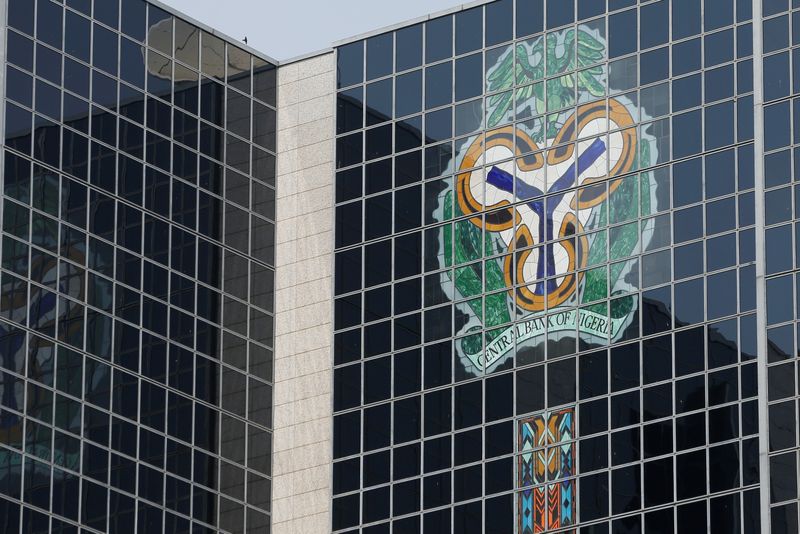 © Reuters. FILE PHOTO: The Central Bank of Nigeria's logo is seen on its headquarters building in Abuja, Nigeria, January 22, 2018. REUTERS/Afolabi Sotunde/File Photo
© Reuters. FILE PHOTO: The Central Bank of Nigeria's logo is seen on its headquarters building in Abuja, Nigeria, January 22, 2018. REUTERS/Afolabi Sotunde/File Photo
By Chijioke Ohuocha
ABUJA (Reuters) - Nigeria will offer a naira incentive to exporters of semi-processed or finished goods made at home in a push to shore up the country's dollar supply, the central bank said.
Nigeria is facing chronic dollar shortages while rising demand has put pressure on the naira, as providers of foreign exchange, such as offshore investors, exited after the COVID-19 pandemic triggered an oil price crash.
The central bank in a circular dated Feb. 25, said it will pay 65 naira ($0.16) to exporters for every repatriated dollar through official channels and sold to the currency market, and it will pay 35 naira for funds repatriated for other uses.
The central bank said this month that it was hoping Nigeria can reach earnings of $200 billion a year in foreign exchange from non-oil exports over the next three to five years.
"In an effort to reduce exposure to volatile sources of foreign exchange and to earn more stable and sustainable inflows of FX, the Central Bank of Nigeria introduced the (race to $200 billion) programme," it said.
Nigeria sells oil and cocoa on global markets to dollars but imports petrol and chocolate at higher cost, the central bank said at the announcement of the scheme.
Exporters sometimes sell their proceeds on the unofficial market where the dollar exchanges at a premium to the naira, or keep funds abroad, an action the central bank wants to change.
In March, the bank offered 5 naira to recipients of remittances from the Nigerian abroad for every imported dollar through licenced channels. It later extended the offer indefinitely, saying that remittances had increased five-fold.
Remittances or money transfers make up the second largest source of foreign exchange receipts after oil exports in Nigeria, Africa's biggest economy.
($1 = 415.39 naira)

